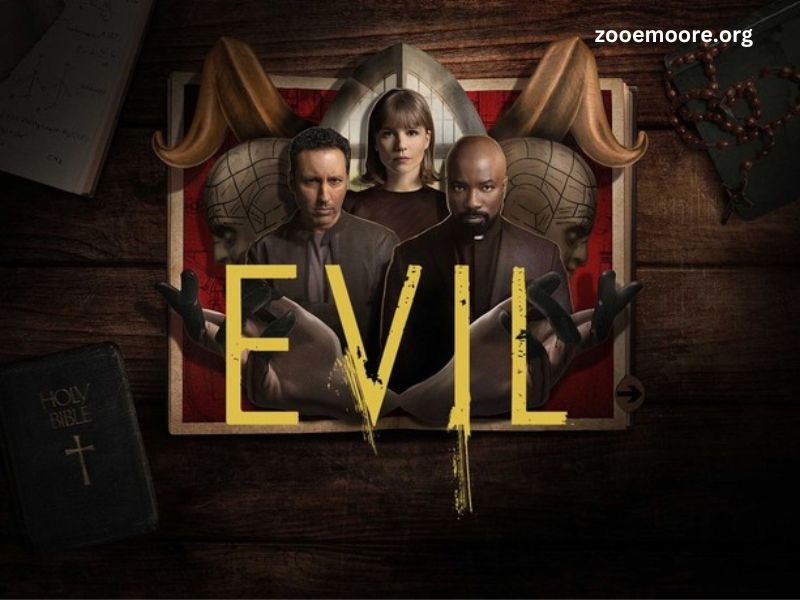The psychological horror series Evil has captivated audiences with its unique blend of supernatural elements, complex characters, and moral dilemmas. Created by Robert and Michelle King, the show first premiered in 2019 and has steadily built a dedicated fanbase. With the anticipation surrounding Season 4, viewers are eager to see how the series evolves and what fresh horrors await the characters. This article will explore the plot, character development, themes, and the critical reception of Evil Season 4.
Plot Overview
As we dive into Season 4, the narrative picks up directly from the cliffhanger ending of Season 3. The stakes are higher than ever as the trio of David Acosta (Mike Colter), Kristen Bouchard (Katja Herbers), and Ben Shakir (Aasif Mandvi) continue their investigations into demonic occurrences while grappling with their personal demons.
In this season, the team is tasked with investigating a new wave of supernatural phenomena linked to a mysterious cult that has emerged in the wake of recent events. This cult not only tests their investigative skills but also challenges their faith, relationships, and moral compass. Each episode delves deeper into the cult’s dark rituals and the psychological manipulation of its followers, exploring themes of belief, power, and the nature of evil itself.
Character Development
-
David Acosta
David remains the moral anchor of the group, wrestling with his faith and the implications of the supernatural. In Season 4, we see him face increasingly difficult moral dilemmas that force him to question his beliefs. His character arc explores the fragility of faith when confronted with undeniable evil, pushing him into darker territories. Viewers witness a struggle between his duties as a priest and the mounting evidence that suggests a more sinister reality.
-
Kristen Bouchard
Kristen continues to evolve as a character who grapples with her skepticism and the psychological impacts of her work. Season 4 sees her confronting her own trauma and the influence of her past on her present decisions. Her relationship with her children and her mother, Lila (played by Christine Lahti), adds layers to her character, as she navigates the difficulties of motherhood while delving into the supernatural. The balance between her rationality and the inexplicable events surrounding her becomes increasingly tenuous.
-
Ben Shakir
Ben’s character serves as the comic relief and the voice of reason within the team. However, Season 4 digs deeper into his backstory, revealing his insecurities and fears. His arc centers around the struggle to maintain his rationality in a world that increasingly defies logic. The exploration of Ben’s character highlights the internal conflict between science and the supernatural, and his growth is marked by the challenges he faces in remaining a skeptic in a world rife with unexplainable phenomena.
New Additions and Dynamic Changes
Season 4 introduces several new characters, each with their unique motivations and connections to the cult. The enigmatic leader of the cult, played by a yet-to-be-revealed actor, poses a formidable challenge for David, Kristen, and Ben. Their interactions with her shed light on the cult’s manipulative tactics and the psychological hold it has on its followers.
Additionally, the dynamic between the main trio shifts as they face external pressures and internal conflicts. Tensions rise as differing beliefs and priorities threaten to fracture their partnership. This evolution in their relationships adds depth to the storytelling, emphasizing the theme of unity in the face of overwhelming evil.
Themes and Symbolism
-
Faith and Doubt
One of the central themes of Evil has always been the tension between faith and doubt. In Season 4, this theme is explored more intricately, particularly through David’s journey. As he encounters situations that challenge his belief in a benevolent God, viewers are compelled to question the nature of faith itself. The show skillfully weaves together personal struggles with larger existential questions, prompting audiences to reflect on their own beliefs.
-
The Nature of Evil
Evil continuously questions what constitutes evil. Season 4 delves into the psychological aspects of evil, presenting it not just as an external force but as a potential inherent quality in humanity. The cult serves as a microcosm of this exploration, showcasing how easily individuals can be swayed into malevolence under the right circumstances. This portrayal serves as a commentary on the susceptibility of human nature to darkness.
-
Psychological Manipulation
The psychological aspects of manipulation take center stage in Season 4. The cult’s tactics reflect real-world psychological principles, emphasizing how fear, isolation, and charisma can lead individuals to abandon their rationality. This theme resonates with current societal issues, making the show not just a supernatural thriller but also a commentary on contemporary challenges.
Critical Reception
Season 4 of Evil has garnered positive reviews from critics and audiences alike. The writing remains sharp, with clever dialogues and thought-provoking plots that keep viewers on the edge of their seats. The character development has been particularly praised, as the show successfully balances horror elements with deep emotional arcs.
Critics have noted the series’ ability to blend humor with horror, creating a unique tone that distinguishes it from other supernatural dramas. The performances, especially by Colter, Herbers, and Mandvi, have received accolades for their depth and authenticity. Additionally, the cinematography and sound design continue to elevate the tension, crafting an immersive viewing experience.
Conclusion
As Evil embarks on its fourth season, it remains a thought-provoking exploration of the supernatural, morality, and the human psyche. The rich character development, intricate plotlines, and exploration of complex themes keep audiences engaged and eager for more. With its unique blend of horror and psychological drama, Evil not only entertains but also challenges viewers to reflect on the nature of evil and the fragility of faith.
As the season progresses, fans are left to ponder the ultimate questions posed by the show: What is evil? How do we confront it? And, ultimately, what does it mean to be human in the face of such darkness? Season 4 promises to deliver even more suspense, character growth, and philosophical musings, ensuring that Evil remains a standout in the realm of contemporary television.
Whether you’re a longtime fan or a newcomer, Season 4 of Evil is set to be a thrilling ride that will leave you questioning everything you thought you knew about the supernatural and the very essence of good and evil.



